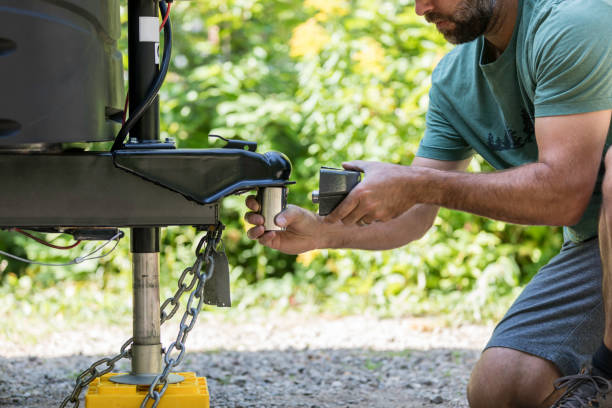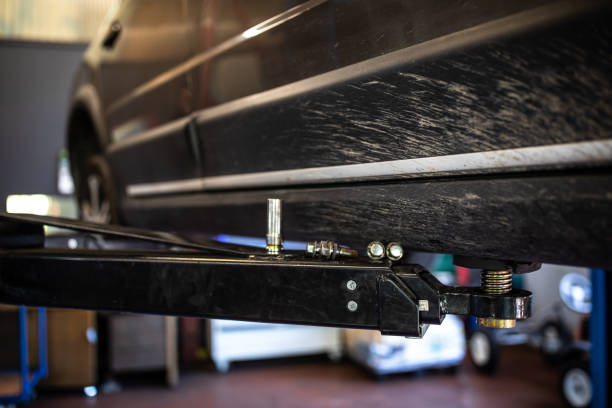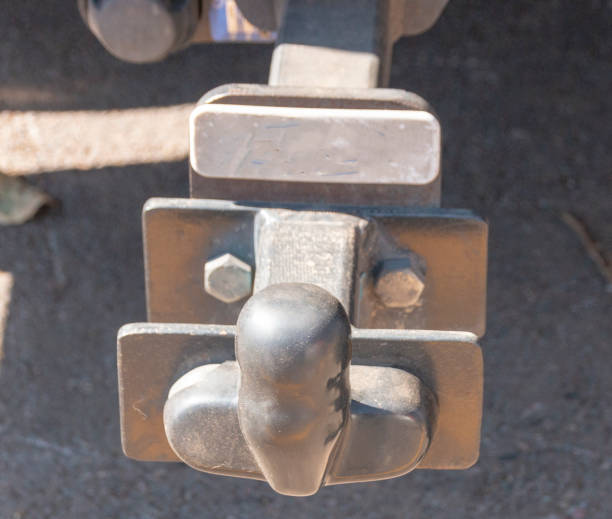Signs Your Hitch Needs Replacing: A Complete Guide for Safe Towing
Signs Your Hitch Needs Replacing
In a properly maintained trailer, camper, or even boat, you can go where you want and stay as long as you want, as long as your towing equipment is in good shape. Another of the most basic items in this setup is the trailer hitch. The majority of drivers fail to detect early terminals that might signal that their hitch is breaking, which can be a danger to other road users.
As we go through the guide, we will discuss all the finer details you need to know about each of these core signs your hitch needs replacing, with real-life experience, technical knowledge, and industry best practices by our side. It is not an option but a requirement to understand how healthy and old your hitch is as a regular tow person.

Hitch Health: Why Does It Matter More Than You Can Imagine?
The hitch is where the contact happens to your vehicle at the central point between the towing vehicle and the trailer. It possesses so much power and pressure with each towing. Quality hitches themselves wear out after some period of use due to rust, fatigue, or mechanical injuries. Trailer detachment, steering difficulty, or even a close accident on the road may be prevented by early detection of the signs your hitch needs replacing. You might be a weekend boater dragging a boat or a towing equipment specialist who tows gear to work every day, but being educated can save you time, money, and possibly lives.
1. Visual Rust and Corrosion
The presence of corrosion is one of the early signs your hitch needs Replacing, especially when it is severe or when it pits into the metal. Whereas rusting does not always signal failure, localized corrosion compromises the strength of a structure. Watch out for areas that surround bolts, welds, and the receiver tube. Discoloration occurs around the stress points, or rust flakes literally peeling off are a red light.
2. Cracked or deformed metal
Obvious breaks in the hitch frame, its receiver, or ball mount. These defects can appear innocuous at first sight and explode during a stressful moment. Check to see if it is deformed—either warped, bent, or changed from its original shape acquired after an incident like a sharp stop or jackknife. The stress points will induce cracking, and that is why frequent visual checks are essential.
3. Movement or Loose Sensation that is Unnecessary
Your hitch seat should be firmly mounted on your vehicle with no backroll. It is time to investigate when the hitch vibrates, makes noise, or those safety things sound loose on the hitch yet the safety devices are unlocked. A loose hitch would probably signify old components, an elongated hole in the berk, or ruptured internals. This kind of instability during subsequent towing not only makes your vehicle become worn out sooner but also can cause it to fall off when a person is on the road, which is a potentially dangerous thing.
4. Wear of hitch ball and its damage
The other obvious evidence that your hitch also needs replacement is wear on the hitch ball. The ball can develop flat areas, dents, or even rust holes, which invalidate safe connections between the trailer and the tow vehicle with time. A defective ball could jeopardize the safety of the trailer coupling, especially on unleveled ground or harsh corners. Examine the ball by the smoothness and round and composed look of it before you play.
5. Variance of Towing Performance
Maybe your trailer is shaky when you drive, or it moves more than usual or is squeaking or howling on the hitch connection; these are not the most obvious signs your hitch needs replacing. Even though it could also be a case of inefficient loading of the trailer, a broken hitch often amplifies these issues. One of the signs that the elements are no longer able to work together as the safe, intact unit may be the manifestations of the unstable towing experience.
6. Perfected or Lack of Safety Equipment
New hitches come with such extremely essential protection features as locking pins, safety chains, or anti-rattle mechanisms. Having one or more of these either broken, rusted, or absent in itself is a big problem. The safety does not belong to the functionality but to the skeleton of any safe towing. When compared to a regular hitch, where your hitch lacks the customary safeguards or you feel that it has been overworked to the extent that it will not be working, it is a good indication that your hitch needs a conversion.
7. Usage and age factors Age the most important reason why I like reading fairy tales is my strong memory about the times in which I grew up.
I can still remember everything about the childhood I had and hence my reading opinion of the fairy tales, which was revealed to me during the childhood.Being hardware, hitches have a restricted lifespan as well. It is all up to you, but if your hitch is older than five to seven years old or, especially, when they use it in extreme weather or off-road environments, you may want to replace it even though there is no visible wear and tear.
Many repeated heavy loadings of metal through abnormal towing, which cannot be easily found, accelerate the phenomenon of metal fatigue. They are supplemented by wear and environmental exposure, and age is one of the few visible in itself. Signs Your Hitch Needs Replacing
8. Hitching and Unhitching Problems
Experiencing trouble in connecting or breaking with your trailer may not be all problems on the user end. The hitch parts cannot operate in a smooth manner when they are old, misaligned, and rusted. The misbehavior persisting in tightening or releasing the hitch may be only minor, especially when you have ruled out a hitch of the trailer coupling.
9. Manufacturer Recall or Model Obsolescence
You should be updated about your hitch model. In isolated incidents, producers will also withdraw some models of hitches due to design defects or poor quality of the part. Replacing it yourself 2 In the case of the kind of hitch that you have being in one such recall or having been phased out due to its performance capabilities, then you would already consider replacing it before these things reach recall status. Not obeying a recall can void insurance claims and put you on legal liability in the event of an incident.
10. Inspections or professional alerts that turned out futile
Have you taken your car to a repair shop only to discover that there is a problem with the hitch? Correspond with the mechanics involved who indicate their areas of concern. Failed safety inspections, scare stories by a local auto dealer, or a negative write-up in the Caravan station wagon are definitive signs your hitch needs replacing. Professional opinion is valuable and should not be underrated.
11. Strange noises or vibrating a machine or part is making.
Your towing installation should make the installation feel like it is part of the car you are driving–not a rattletrap that has noisy bits. Squeaking, banging, or visible vibrations are often an indication of the problem in the hitch connection. These Signs Your Hitch Needs Replacing could also mean wearing of the bolts or weakening of welds or the structure as a whole. So not appreciating these sounds can be a costly consequence.
12. Welding of Repairs or Modifications [Repairs or Modifications]
Does your hitch ever get welded on in any alteration? This is a very serious thing. Even though, in some cases, DIY fixes might seem to make it look safe, that can still considerably reduce the load-bearing capabilities of the hitch. It is necessary to consider any other than factory welds and repair because they do not support towing stress. Use hitch products only approved by the manufacturer and load tested to suit your vehicle and the type of trailers used on them.
The Immediate Replace Time
In the case of more than one sign your hitch needs replacing things like rust, cracks, and instability, act at once. Towing with a damaged hitch would be a dicey venture. The expense of replacing is small in digital terms compared to the damage that might occur with a broken connection in the road. Find better-quality versions of famous brands and get them fitted by the pros wherever possible.
Conclusion: There Is No Room for Ignoring the Indicators
Towing is an exercise that requires attention and regular maintenance. The warning signs are similar, whether it is a bike rack on a Class I or heavy trailers on a Class V. Observing the Signs Your Hitch Needs Replacing it dutifully can be the difference between a quick and safe journey and possibly losing your life. And, Don, there is no such thing as being sure enough of a thing like your hitch.

FAQs
In which intervals should I examine my hitch regarding destruction?
Ask yourself if you examine your hitch before every towing. Look at it for rust, cracks, or not being tight. More thorough inspection is advisable once every six months, just in case you frequently tow or tow in rough weather.
Are there chances of repairing a dented hitch as a replacement?
You are able to take care of minor issues like changing a pin or wiping away rust, but the damage to the structure requires a hitch replacement, like in the case of cracks, extreme corrosion, or dented sections. Never change or weld hitches since it can scale back safety.

0 Comment